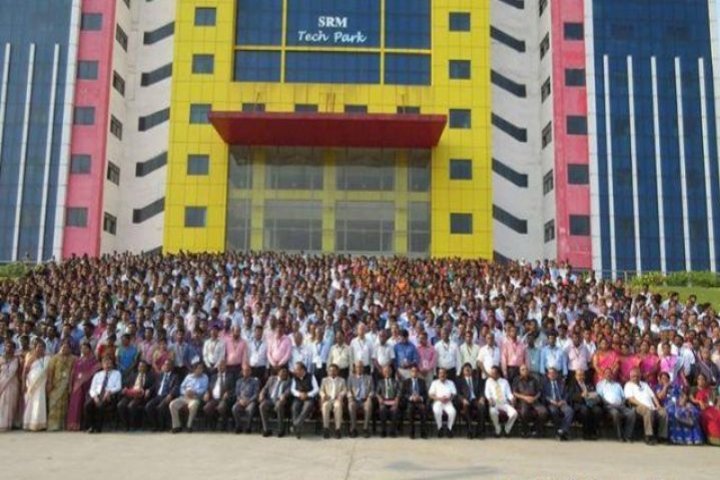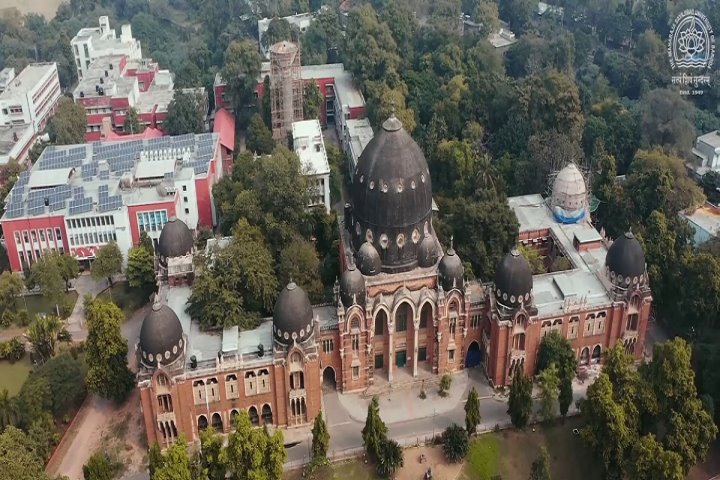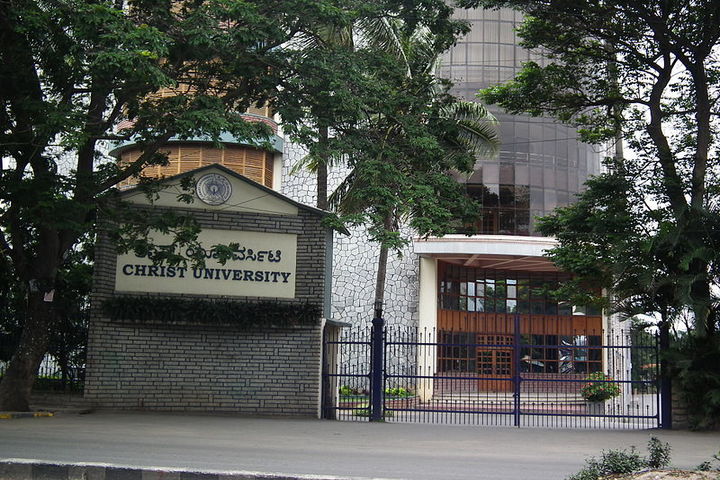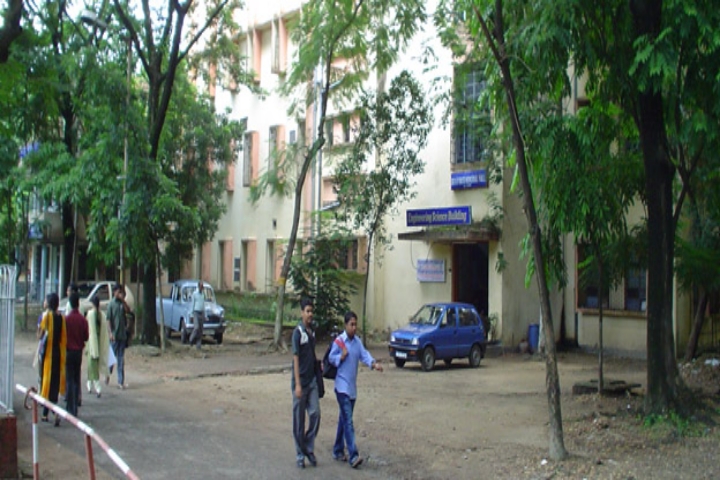
Architecture Engineering Course Details - Fees, Subjects, Syllabus, Duration, Eligibility, Career Scope
Degrees offered: B.Arch, M.Arch, Diploma, Ph.D, B.Sc.(Hons)
What is Architecture Engineering
Architecture courses provide knowledge of planning, designing, and engineering large structures and buildings aimed at optimum utilisation of space. It combines the elements of science, art, and technology and requires the students to develop interdisciplinary skill sets. It builds in engineering knowledge, passion for modern technologies, and creativity among candidates.
Architecture spans a wide range of activities from macro-level urban and landscape designing to micro-level construction detailing and interiors. Residential architecture, public architecture, commercial architecture, landscape architecture, industrial architecture, and interior design are the major branches of Architecture. There are 626 colleges in India offering Architecture Engineering courses.
Highlights- Architecture Engineering
Particulars | Values |
Branch Name | Architecture Engineering |
Degree | UG: B.Arch, BE/BTech, BPlan, BDes PG: PhD in Architecture, M.Arch, MPan, MTech, MS |
Eligibility | UG: 10+2 with a minimum 50 per cent aggregate with subjects Physics, Chemistry, and Maths PG: Bachelor’s degree in related disciplines |
Duration | UG- 4 years PG- 2 years |
Entrance Exam | UG: JEE MAIN, CUET UG, JEE ADVANCED PG: TANCET, GATE, CEETA PG |
Course Fee | Rs. 75,000 - Rs. 4.73 Lakhs |
Average Salary | Rs. 3.12 LPA ( for Interior Designer) |
Career Option | Architect, Draftsman, Urban Planner, Landscape Architect, Interior Designer, Project Consultant. |
Top Recruiters | L&T, DLF, Jindals, IMAXE, Sahara Group, Malwadkar and Malwadkar |
Specialisation or Similar Ones
There are many specialisations in the Architecture Engineering field that are somewhat related or similar to Architecture Engineering courses. Some of the specialisations in the Architecture Engineering field are as follows:
Diploma in Architecture Assistantship | |
BE Architecture Assistantship | - |
Top Architecture Engineering Colleges in India
Many institutes in India, both government and private, offer Architecture Engineering courses in India. Admission to these institutes is based on the entrance examination. In the table below, we have mentioned the top Architecture Engineering colleges in India:
Colleges | Fees |
Rs. 11.15 Lakhs | |
Rs. 6.96 Lakhs | |
Rs. 12.83 Lakhs | |
Rs. 5.70 Lakhs | |
Rs. 7.81 Lakhs | |
Rs. 15.5 Lakhs | |
Rs. 5.72 Lakhs | |
Rs. 7.83 Lakhs | |
Rs. 10.50 Lakhs | |
Rs. 6.28 Lakhs |
Note: The fee structure provided above can be for any particular Architecture Engineering (Diploma/ Degree/PGD).
Top Private Architecture Engineering Colleges in India
Numerous private institutions provide Architecture Engineering courses and often offer attractive average salary packages to students relative to the annual fee. The tuition fee in private Architecture Engineering colleges is typically higher compared to public institutions. Some of the top private colleges for Architecture Engineering are mentioned in the table below:
Colleges | Fees |
Rs. 13.75 Lakhs | |
Rs. 4.82 Lakhs | |
Rs. 10.75 Lakhs | |
Rs. 4 Lakhs | |
Rs. 18.45 Lakhs | |
Rs. 12.45 Lakhs | |
Rs. 4 Lakhs | |
Rs. 15.3 Lakhs | |
Rs. 6.08 Lakhs | |
Rs. 9 Lakhs |
Top Government Architecture Engineering Colleges in India
Several government institutions in India provide Architecture Engineering courses. Admissions for these courses are usually determined by past academic achievements and scores from entrance examinations. Some of the top government colleges in India that offer Architecture Engineering are listed in the table below:
Colleges | Fees |
Rs. 80,750 | |
Rs. 6.8 Lakhs | |
Rs. 7.62 Lakhs | |
Rs. 6.85 Lakhs | |
DCRUST Murthal | Rs. 10.50 Lakhs |
GNDU Amritsar | Rs. 6.28 Lakhs |
Rs. 2 Lakhs | |
Rs. 75,000 | |
Rs. 75,000 | |
Rs. 7.47 Lakhs |
Eligibility Criteria (UG & PG) of Architecture Engineering
The undergraduate architecture course requires a decent grade in class 12 with PCM. A diploma in architecture can be done after class 10. Postgraduate and research-based programmes require an undergraduate and postgraduate degree in Architecture. Along with this, candidates are required to qualify for entrance exams.
Eligibility Criteria for UG Courses
The eligibility criteria for Architecture Engineering will vary from one institution to another. Different institutions have distinct eligibility criteria for admission to Architecture Engineering courses. The eligibility criteria are as follows:
- Candidates must have completed their 12th grade with Physics, Chemistry, and Mathematics.
- They must have scored at least 60 per cent in their 10+2 examinations from a recognised board such as CBSE/ICSE/State board.
- Candidates who have completed their diploma in Architecture Engineering are also eligible for the programme.
- The age of the candidate should be between 17 and 21 years.
Top Entrance Exams for UG Courses
In India, there are various examinations conducted by various bodies to get admission to Architecture Engineering. They have their own set of conduct. Some of the top entrance examinations are mentioned below:
Exam Name | Level | Conducting Body | Exam Schedule |
National | NTA | ||
National | NTA | ||
National | IIT Bombay |
Eligibility Criteria for PG Courses
Candidates interested in pursuing postgraduate courses in Architecture Engineering must fulfil the eligibility criteria. They should ensure they meet these criteria before applying for admission. The eligibility criteria for postgraduate-level Architecture Engineering are as follows:
- Candidates must have achieved their master’s degree in Architecture Engineering or in any other related master’s course.
- They must also take the GATE entrance examination, which is a well-known entrance examination at the postgraduate level in the field of engineering.
Top Entrance Exams for PG Courses
There are many entrance examinations in the field of Engineering, conducted by various universities. Students can find the relevant information for various examinations in the table below:
Exam Name | Level | Conducting Body | Exam Schedule |
National | IITs | ||
National | NTA | ||
State | Anna University | - | |
State | Anna University | ||
State | Sri Venkateswara University Tirupati | - |
College Predictors VIEW ALL
Scope of Architecture Engineering in India and Abroad
A career in architecture is lucrative and has lots of potential in terms of development, both in India and abroad. The salaries are high in the private sector as compared to the public sector. The jobs also provide long-term security. The job can range from designing houses, big complexes, luxury apartments, hospitals, hotels, stadiums, shopping complexes, schools, and industrial complexes.
Course Fees Architecture Engineering
| Minimum Fees | Maximum Fees | |||
|---|---|---|---|---|
| Private | Government | Private | Government | |
| UG | ||||
| PG | ||||
| DOCTORAL | ||||
| DIPLOMA | ||||
Course Subjects
Architecture Engineering Syllabus for UG Courses
The course curriculum of Architecture Engineering can be found on the official website of the institute or the programme brochure of the course. Some of the subjects at the undergraduate level are Fundamental Architecture Studio, Engineering Mechanics, and Engineering Thermodynamics. In the table below we have mentioned the B.Tech Architecture syllabus:
Semester 1 | |
Engineering Mathematics-I | Engineering Mechanics |
Professional Communication Skills | Engineering Mechanics Lab |
Fundamental Architecture Studio - I | Engineering Physics Laboratory |
Engineering Physics | Computer Programming (Theory + Laboratory) |
Semester 2 | |
Basic Electronics Engineering | Fundamental Architecture Studio - II |
Engineering Thermodynamics | Building Construction - I |
Chemistry Laboratory | Engineering Maths - II |
Engineering Chemistry | Basic Electronics Engineering (Theory+Lab) |
Semester 3 | |
Surveying - I (Theory + Practical) | Climatology |
Mechanics of Solids | Fluid Systems |
Fluid-Systems Lab | Building Construction - II |
Engineering Mathematics - III | History of Architecture |
Semester 4 | |
Engineering Mathematics - IV | Design Studio - I |
Strength of Materials Lab | Structural Analysis |
Surveying - II | Building Construction - III |
History of Architecture II | Geotechnical Systems |
Semester 5 | |
Steel Structures | Behavioural Architecture |
Concrete Structures | Interior Architecture & Space Programming |
RCC Structures | Building Construction - IV |
Soil Mechanics | - |
Semester 6 | |
Architectural Design Studio: Functionally Complex Buildings | Professional Elective I |
Professional Elective II | Concrete Structures-II |
Working Drawings | Theory of Architecture |
Housing | - |
Semester 7 | |
Professional Elective - III | Water Resources Engineering |
Professional Elective - IV | Estimation, Costing, and Valuation |
Introduction to Urban Design | Matrix Methods of Structural Analysis |
Dissertation | - |
Semester 8 | |
Industrial Management | Practical Viva Voce |
Summer Internship and Training | Project Work |
Architecture Engineering Syllabus for PG Courses
The PG course in architecture engineering is of two years duration. Below, we have compiled the MArch syllabus taught at AKTU Lucknow.
Semester 1 | Semester 2 |
Design Studio -I (Urban Design) | Design Studio -II (Conservation) |
Research Techniques In Architecture & Planning | Sustainable Heritage |
Infrastructure Planning | Vernacular Architecture |
Mass Housing Strategies | Architectural Conservation Theory |
Contemporary Architecture Theory And Trends | Project Management And Planning |
Remote Sensing And Gis | Research Seminar |
Semester 3 | Semester 4 |
Seminar I (Architectural Pedagogy) | Thesis |
Seminar II (Legislative Policies In Arch.) | - |
Dissertation | - |
Careers in Architecture Engineering
There are many career options in the field of Architecture Engineering, and candidates can choose the career of their choice depending on their interests. Mentioned in the table below are some of the popular career options in the field of Architecture Engineering:
Job Profile | Job Description |
Architects design buildings and spaces and make sure they are both attractive and practical. They manage projects from start to finish and oversee every client’s needs and safety standards. | |
Interior Designers analyse the needs of the client and plan the preliminary space that is available. They prepare the sketches and apply various designable concepts. They select the furniture, fixtures, equipment, and millwork. | |
Consultant | Consultants are professionals who work with large-scale projects and some architects choose this vertical as their specialisation. It is an interesting option that involves the research side of the student of an architecture course. They will interview clients and staff for various projects. |
Urban Planners work on the arrangement and appearance of the new towns, cities, and suburbs. They create the localities and design space around them where people prefer comfort and perfection. |
Upcoming trends
Architecture Engineering is a dynamic field witnessing rapid advancements. These technologies are revolutionising the industry, offering diverse career prospects and cost-effective solutions. Some of the upcoming trends are:
- Sustainable and Green Building Design
- Smart Buildings and IoT
- Prefabrication and Molecular Construction
- Advanced Building Material
- Resilient Design
Job Profiles and Top Recruiters
The graduates in Architecture Engineering can work in various areas such as Landscape Architect, Structural Engineering, and Research. Mentioned below are some top recruiters in the field of Architecture Engineering. Many companies are looking for deserving graduates.
Top Recruiters:
- L&T
- DLF
- Jindals
- IMAXE
- Sahara Group
- Malwadkar and Malwadkar
Average Salary
The average salary of an Architecture Engineering graduate depends on many factors such as the level of education, location of the company, and skills and experience of the candidate. Mentioned in the table below are the average salaries of some of the top career options in the field of Architecture Engineering:
Job Profile | Average Salary |
Architect | Rs. 26 LPA |
Rs. 5.84 LPA | |
Consultant | Rs. 10.6 LPA |
Rs. 3.12 LPA |
Source: Glassdoor, Payscale
Note: Salary may vary depending on various factors.
Required Skillset for Architecture Engineering
Candidates must have certain skills in order to perform well in the field of Architecture. These skills will help the candidate in their careers and also academically. Mentioned below are some required skill sets in the field of Architecture Engineering:
- Numerical Skills
- Creative Skills
- Design Skills
- Legal Knowledge
- Teamwork
- Problem-Solving Skills
- Quantitative Aptitude
Course Curriculum for Architecture Engineering
The course curriculum of Architecture Engineering is comprehensive and multidisciplinary. It covers a wide range of subjects, including design, construction, and maintenance of buildings and other physical structures. Students learn about materials, construction methods, structural design, and architectural history.
In addition, the curriculum also includes advanced topics such as sustainable design, urban planning, and landscape architecture. Students gain practical experience through studio courses and internships.
Popular Architecture Engineering Entrance Exams in India
JEE Advanced
Application Process: 02 Jun, 2025 - 03 Jun, 2025
COMEDK UGET
Exam Date: 10 May, 2025
NATA
Application Process: 03 Feb, 2025 - 06 May, 2025
Popular Architecture Engineering Colleges in India VIEW ALL
MSRIT Bangalore
- Fees: ₹ 607870
- Exams: NATA
Frequently Asked Questions (FAQs)
Question: What are some of the top colleges offering Architecture Engineering courses?
Answer :
The top colleges offering Architecture Engineering courses are The Institutions of Engineers India- Kolkata, IIT Vellore, Singhania University, Gondwana University, Global Institute of Management and Emerging Technologies, and JMI New Delhi.
Question: What are the top entrance examinations in the field of Architecture Engineering?
Answer :
The top entrance examinations in the field of Architecture Engineering are JEE Mains, CUET UG, JEE Advanced, and GATE.
Question: What is an Architecture Engineering course?
Answer :
Architecture Engineering is a discipline of Engineering that deals with the engineering and construction of buildings. The degree programmes are offered at both undergraduate and postgraduate degrees such as B.Tech and M.Tech.
Question: What is the average salary of an Architecture Engineering graduate in India?
Answer :
The average salary of an Architecture Engineering graduate depends on many factors such as the overall experience and expertise of the candidate, the job profile applied by the candidate, and the location of the job. The average salary of the graduate is Rs. 3 LPA.
Question: What are the top recruiters in the field of Architecture Engineering?
Answer :
The top recruiters in the field of Architecture Engineering are L&T, DLF, Jindals, IMAXE, Sahara Group, and Malwadkar and Malwadkar.
Question: What are the career options in the field of Architecture Engineering?
Answer :
The career options after an Architecture engineering are Architect, Interior Designer, Consultants, and Urban Planner.
Questions related to Architecture Engineering
Is iiit banlore have architecture course
Hii,
IIIT Bangalore does not offer a Bachelor of Architecture (B.Arch) program. It specializes in IT and related fields, offering B.Tech programs like Computer Science, Electronics, and Data Science. If you're looking for architecture courses in Bangalore, institutions like RV College of Architecture, BMS College of Architecture, and MS Ramaiah Institute of Technology offer B.Arch programs. Admissions typically require NATA or JEE Main Paper 2 scores
Is there Architecture course ?
Architecture is a well-established and fascinating field of study that blends creativity with technical knowledge.
Typically, to become a qualified architect, you would pursue a Bachelor of Architecture (B.Arch.) degree. This is usually a five-year undergraduate program. During this time, you'll delve into a wide range of subjects that are crucial for designing and planning buildings and other structures. These subjects often include architectural design, building construction, structural engineering, history of architecture, urban planning, and even environmental studies. The curriculum is usually a mix of theoretical learning, practical studio work where you'll develop your design skills, and project-based assignments.
To get into a Bachelor of Architecture program, you'll generally need to have completed your 10+2 (high school) education with specific subjects like Physics, Chemistry, and Mathematics. Many colleges also require you to clear an entrance exam. Some of the popular entrance exams for architecture in India include the National Aptitude Test in Architecture (NATA) and the Joint Entrance Examination (JEE) Main Paper 2. These exams often assess your drawing skills, spatial reasoning, and general aptitude for the field.
After completing your B.Arch degree, you'll have a wide array of career paths open to you. You could work as a practicing architect in design firms, take on roles in urban planning, interior design, landscape architecture, or even venture into construction management. With further specialization, you could focus on areas like sustainable architecture or heritage conservation. The field offers a chance to shape the built environment around us, making it a very rewarding career for those with a passion for design and construction.
I hope this helps.
Is it compulsory to opt for PCM in 11th to do architecture or interior designing
Hello,
No, PCM (Physics, Chemistry, Mathematics) in 11th and 12th is not compulsory for Interior Design but is required for Architecture .
Architecture (B.Arch) – PCM is Compulsory
-
To pursue a Bachelor of Architecture (B.Arch) , Mathematics is mandatory in Class 12 .
-
You must clear NATA (National Aptitude Test in Architecture) or JEE Main Paper 2 for admission to top colleges.
-
Eligibility: 10+2 with PCM (minimum 50% marks) or a 10+3 Diploma with Mathematics .
Interior Design – PCM is Not Required
-
For Diploma, B.Sc, or B.Des in Interior Design , students from any stream (Science, Commerce, Arts) can apply.
-
No specific entrance exam is mandatory, but some institutes conduct their own tests or interviews.
-
Top Institutes: NID, NIFT, Pearl Academy, INIFD, CEPT, etc.
Conclusion:
-
If you want to do Architecture (B.Arch), PCM is mandatory .
-
If you want to do Interior Design, PCM is not required ; you can apply after 12th in any stream .
Is it compulsory to opt for PCM in 11th to do architecture or interior designing
Hello,
To pursue B. Arch you generally need to have completed your 10+2(or equivalent) with a science stream (PCM) and achieve a minimum Aggerate of 50 to 60 percent. You'll also need to clear entrance exam like JEE mains paper 2 or NATA.
I want to get to know that which colleges provide diploma in architecture in vadodara or near vadodara
Here are the top colleges for a Diploma in Architecture near Vadodara:
1. MSU Baroda (Polytechnic) – Well-known for quality education.
2. Parul University – Practical & interdisciplinary learning.
3. RMS Polytechnic – Industry-focused curriculum.
4. Butler Polytechnic – Strong practical training.
5. Sigma Polytechnic – Modern architectural practices.
6. BVPIT, Bardoli – Comprehensive archite
ctural education.












 Answer later
Answer later








